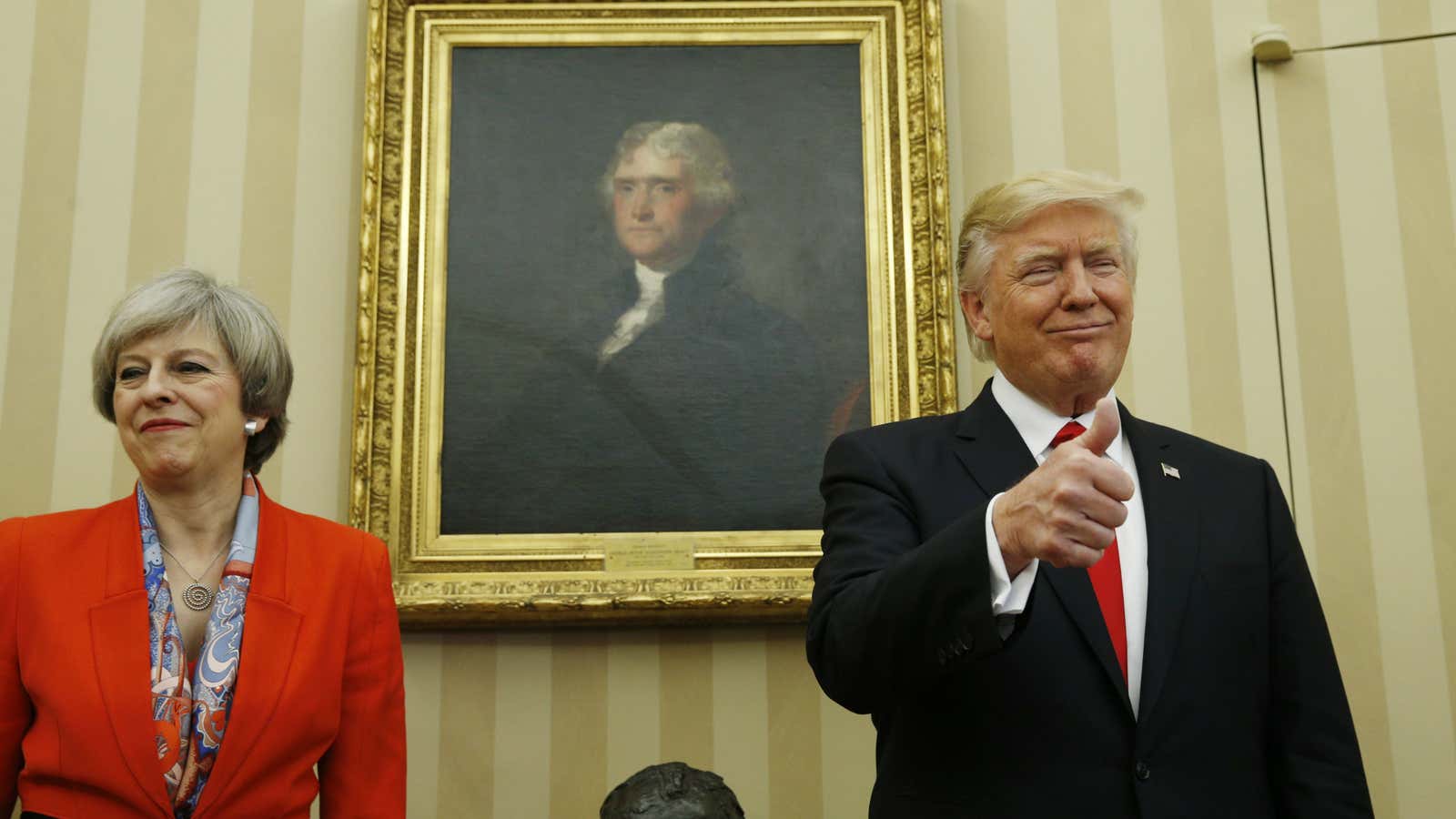Imagine a world leader in disarray. Caught off-guard by the demands of governing, making up policy on the fly, trying to contain disputes within the governing party, and facing an onslaught of outside criticism.
It sounds like US president Donald Trump, but it’s just as true of the English-speaking administration across the Atlantic. The British prime minister, Theresa May, campaigned for the UK to stay in the EU. Now she’s in charge of taking it out, while strenuously insisting that a “global Britain” is better off severed from its largest trading partner.
Just beginning Brexit has wreaked havoc. May has shuttled back and forth through courts and parliament to try to wrest control of the Brexit process and subsequent negotiations. She’s been forced to share some power with MPs but won’t stand for party dissent; last week she fired Michael Heseltine, a government adviser and former deputy prime minister, for rebelling.
Meanwhile there’s trouble in the regions. May has just denied Scotland a second independence referendum. How she’ll convince the Scots that splitting from their largest trading partner (England) is a disastrous mistake while cheering the benefits of the UK splitting from the EU is unclear.
Then there is the matter of governing everything else about the UK. Last week’s budget contained just one notable item, a tax increase on the self-employed. That seemed like a smart effort to prepare the UK for the future. But resistance within May’s Conservative party killed the plan within a week. “A screeching, embarrassing U-turn,” as one politician called it.
All of these fumblings would be of parochial interest were Brexit not such an era-defining challenge. The UK needs skill and steel to succeed. Don’t be fooled by their Oxford educations and posh accents—Britain’s leaders are flailing just as alarmingly as their US counterparts.
This was published as part of the weekend edition of the Quartz Daily Brief. Sign up for it here, tailored for morning delivery in Asia, Europe and Africa, or the Americas.




